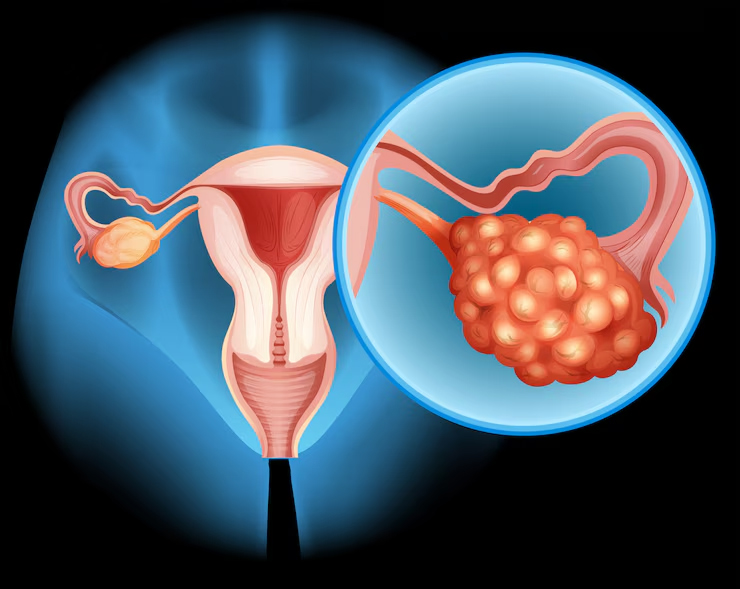
Polycystic ovary syndrome (PCOS) is a condition where hormonal disorder causes enlargement of ovaries with small cysts on the outer edges. Suffering from PCOS can be challenging but vitamin D can help you manage this condition. Gynaecologists emphasise the importance of vitamin D for women with PCOS due to its potential impact on various aspects of reproductive and overall health.
Table of Content:-
To understand the importance of vitamin D in managing PCOS, OnlyMyHealth team interacted with Dr Pratibha Singhal, Director - Department of Gynecology and Obstetrics, Cloudnine Group of Hospitals, Noida.
Dr Singhal said, “PCOS is a common hormonal disorder that affects women of reproductive age, characterised by irregular menstrual cycles, excess androgen levels, and multiple small cysts on the ovaries. Alongside these symptoms, women with PCOS often experience other health issues, such as insulin resistance, weight gain, infertility, and increased risk of cardiovascular disease.”
As per Dr Singhal, Vitamin D is lower in obese PCOS patients as compared to non-obese PCOS patients. “Vitamin D improves the fertility in PCOS cases by reducing the insulin resistance testosterone and DHEAS levelsImpaired glucose tolerance increased risk of type 2 diabetes increased insulin resistance is observed in PCOS cases with low Vitamin D levels .”

A study published by the National Institute of Health proves that consumption of vitamin D can help in managing PCOS. It stated, “Patients with PCOS who took Vitamin D supplements had improved menstrual cycles and folliculogenesis as well as lower serum testosterone levels, which were all positive effects on their capacity to reproduce.”
Here are several reasons provided by Dr Singhal on why vitamin D supplementation for women with PCOS.
Regulation of Hormones
Dr Singhal explains that vitamin D plays a role in hormone regulation, including insulin and androgen levels. Insulin resistance is a common feature of PCOS, leading to elevated insulin levels that can stimulate androgen production. “Adequate vitamin D levels may help improve insulin sensitivity and thereby reduce androgen levels, potentially alleviating PCOS symptoms,” said Dr Singhal.
Also read: How To Treat PCOS Without Birth Control Pills?
Menstrual Regularity
Women with PCOS often experience irregular menstrual cycles due to hormonal imbalances. Vitamin D deficiency has been associated with menstrual irregularities. By maintaining optimal vitamin D levels, Dr Singhal says that menstrual regularity may improve in women with PCOS.

Fertility
Infertility is another common concern for many women with PCOS. “Vitamin D is thought to play a role in reproductive health, and some studies suggest that vitamin D supplementation may enhance fertility outcomes in women with PCOS,” Dr Singhal said. By supporting ovarian function and reducing insulin resistance, vitamin D could potentially improve fertility in this population.
Metabolic Health
PCOS is closely linked to metabolic disturbances, including obesity and dyslipidemia. Vitamin D deficiency has been implicated in these metabolic abnormalities. Dr Singhal advises that optimising vitamin D levels may help in managing metabolic aspects of PCOS and reducing associated health risks.

Mood and Well-being
Women with PCOS are at increased risk of mood disorders, such as depression and anxiety. Vitamin D deficiency has been associated with mood disturbances. Dr Singhal said that vitamin D plays a potential role in supporting mental health and well-being in women with PCOS.
Also read: PCOS, Obesity, And Infertility: Expert Explains Their Connection And What You Should Know
Conclusion
Vitamin D plays a critical role in the management of PCOS. By addressing vitamin D deficiency through supplementation and adopting a holistic approach to health and lifestyle, women with PCOS can potentially improve their symptoms, reproductive health, and overall quality of life. Consulting with a gynaecologist or healthcare provider is recommended for personalised guidance and treatment recommendations tailored to individual needs.
Also watch this video
How we keep this article up to date:
We work with experts and keep a close eye on the latest in health and wellness. Whenever there is a new research or helpful information, we update our articles with accurate and useful advice.
Current Version